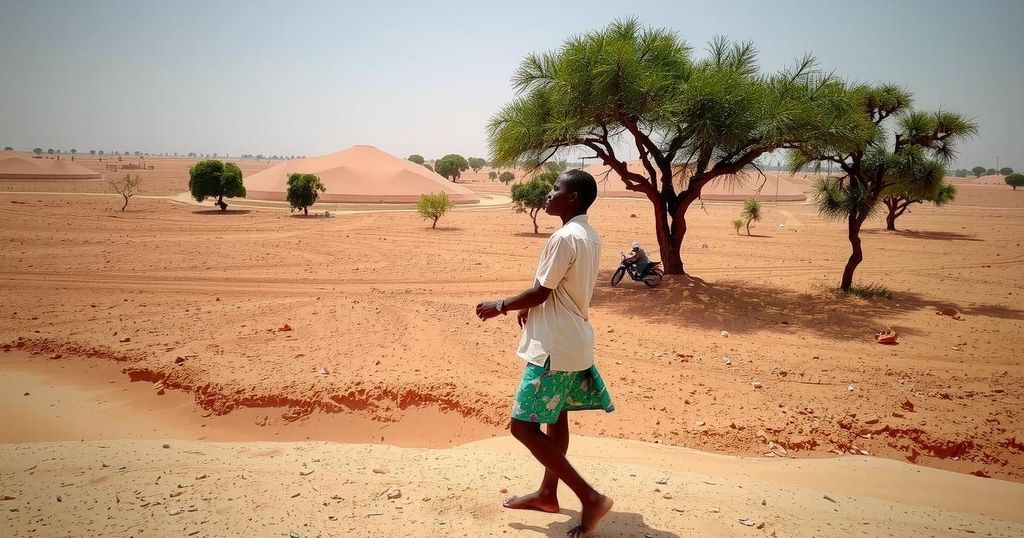The Sahel region faces severe flooding and climate change impacts worsened by political instability. Military coups disrupt governance, hindering adaptation and access to international support. Local initiatives promote community resilience, yet political isolation limits effective responses. Organizations work to empower local knowledge in resource management, emphasizing the need for better governance and regional cooperation for climate solutions.
The Sahel region is grappling with severe climate impacts exacerbated by political instability. Recent torrential rains have led to extensive flooding across countries such as Burkina Faso, Mali, and Niger, displacing millions and destroying crucial farmland. Military coups have disrupted governance structures, hampering climate adaptation initiatives and limiting access to international funding. Local organizations are promoting community-driven strategies, such as Water User Associations, to manage resources sustainably, but challenges persist due to reduced international support and prioritization of security over environmental policies. Despite the potential for renewable energy and sustainable agriculture, political and financial constraints inhibit progress in climate resilience in the Sahel. Organizations such as the Sahara and Sahel Observatory are attempting to bridge these gaps, highlighting the need for enhanced regional cooperation and governance to effectively tackle climate challenges.
The Sahel is a semiarid region located just south of the Sahara Desert, characterized by its vulnerability to climate change. Dependence on agriculture makes it susceptible to extreme weather conditions, including droughts and floods. The recent rains have exacerbated existing vulnerabilities, leading to widespread flooding and displacement across several Sahelian countries, including Niger, Mali, and Burkina Faso. In addition, political changes, particularly military coups, have disrupted governance structures and hindered international assistance, creating a complex environment for climate adaptation. The focus has shifted towards community-oriented initiatives as local organizations attempt to empower communities and leverage regional cooperation for sustainable resource management.
In summary, the Sahel’s response to climate change is profoundly affected by political instability following military coups that disrupt governance and climate adaptation efforts. The flooding this year has severely impacted local communities, highlighting their vulnerability under changing climatic conditions. While local initiatives and organizations strive to enhance resilience through sustainable practices, the need for improved governance and international support remains critical. Without addressing both climate change and political challenges, the Sahel faces an uncertain future in its quest for climate resilience. The effective collaboration among Sahelian governments and stakeholders is essential to implement comprehensive solutions that address the interconnected issues of climate adaptation and political stability in the region.
Original Source: news.mongabay.com






